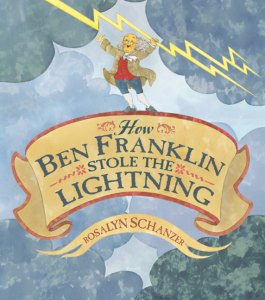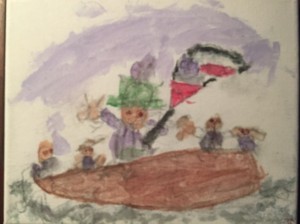 There are few things more satisfying than helping someone learn what they are desperate to know. In my opinion (and hey, it’s my blog). When it’s time for AJ to learn about history, he approaches this much like others approach a big bag of potato chips or a hot fudge sundae. Which makes it wonderfully gratifying to be one of the many people finding the resources and ideas to help feed this passion.
There are few things more satisfying than helping someone learn what they are desperate to know. In my opinion (and hey, it’s my blog). When it’s time for AJ to learn about history, he approaches this much like others approach a big bag of potato chips or a hot fudge sundae. Which makes it wonderfully gratifying to be one of the many people finding the resources and ideas to help feed this passion.
Over the last few years, we basically went where the wind took us in terms of history. If something captured his attention in a book, or a documentary, or somewhere we visited, his curiosity would drive him to learn more, and the rest of us just tried to keep up. This resulted in several years of fun but not necessarily linear learning about the stories of history. This year, since we had covered a lot of things once already, I have designed our curriculum to start at the beginning of American history, and take us on the story up through today. This of course means we are repeating many topics, but with new resources, new ideas, and new appreciation for their place in the grander scheme of things.
So while I have not even remotely been updating this blog weekly, as I pretend I do in my mind, we can pick up right where I left off with my last blog post about history: the beginning of the American Revolution.
We all have a soft spot for this topic in our house, as we studied the Revolution for first grade and capped it off with an epic trip to Boston (search the menu of this blog to see our post: No More Tea. No More Kings from our first grade year!) No trip to Boston was in the cards this year, but we had the pictures from last time, and a slightly longer attention span for depth and detail.
As you know, if you have been following along with our blog, we are using the Intellegyo Unit Studies for History this year. Intellego kindly provided an American History: Volume II to guide us on the next chapter of our learning.
And while the outline is about what you would expect in a study of the American Revolution, I appreciate the “extension activities” they provide, which you can think of as a quick detour into something a bit unexpected. Like for example, we were plodding along, delving into the 13 colonies, ramping up for a little French and Indian War review, when bam! What about Blackbeard? What was his role in all this colonization and exploration and pillaging? Didn’t see that coming, did you? But here he is:
Here are some great Blackboard (aka Edward Teach) resources that we found to extend the Extension…
Videos:
http://www.nationalgeographic.com/pirates/bbeard.html
http://www.weather.com/series/great-outdoors/video/recovered-from-blackbeard-shipwreck
Cool Website:
http://www.thepirateking.com/bios/teach_edward.htm
AJ lives for a good extension activity, and has been known to peek ahead to see what might be coming.
Our focus this time around really was on the story of things, how one event led to the next, and how all the pieces of the picture fit together. Yes, there was the life and experiences of the colonists, but what did the Europeans think? Or the Africans, who were being brought over as slaves? I continue to appreciate all the embedded links these until studies provide–to the websites of historical sites, to lengthy lesson plans, pictures of artifacts, video clips, activities.
In addition, we integrated the Liberty’s Kids DVDs into our studies as well. They cost all of $5 (for ALL of them) on Amazon, and they are a fantastic complement to the study of early US History. They are broken down by topic, so they are easy to build into lesson plans. I am a huge fan of relevant technology, so we loved how this worked for us. There’s a companion website to the DVDs if you want to check it out:
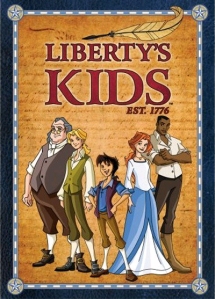 We merrily revisited the Boston Tea Party (no more tea. no more kings. Cue the Schoolhouse Rock!):
We merrily revisited the Boston Tea Party (no more tea. no more kings. Cue the Schoolhouse Rock!):
https://www.youtube.com/watch?v=t-9pDZMRCpQ
We took that opportunity to talk about taxes. Why did they need them? Why were the colonists so upset? What do we use taxes for today?
We actually had a great time with this concept (more than people usually do with taxes). To drive home how those colonists were feeling, I drafted a list of taxes that would be imposed at our house during the week he was learning about this. Lego tax. Toilet tax. TV tax. Computer tax. That got old pretty quick! Later that day, AJ imposed a tax of his own: singing tax (apparently I’m not as good of a singer as I would like to think):
The story rolled on…the first Continental Congress, then the second…(wait–how about Longfellow? Did you remember him? Why was he important right now?).
As always, there were lots of great new books to read. Here were a few of our favorites for this unit:


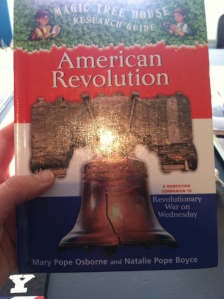
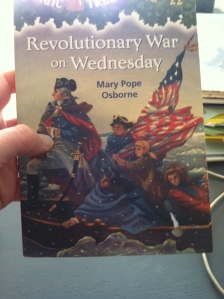 We took a bit of time to read up on old Ben Franklin as well. He was such a Renaissance Man. (AJ insisted for awhile that Ben had “invented lightening”. I refused to let that debate go until he acknowledged that Ben discovered electricity using lightening, rather than INVENTING lightning).
We took a bit of time to read up on old Ben Franklin as well. He was such a Renaissance Man. (AJ insisted for awhile that Ben had “invented lightening”. I refused to let that debate go until he acknowledged that Ben discovered electricity using lightening, rather than INVENTING lightning).
Enter the Declaration of Independence. All men are created equal.

(But as AJ pointed out, if all men were created equal, why did the colonists think it was okay to have slaves?)
We suffered along with the soldiers through battles, Lexington and Concord, the winter of Valley Forge, Washington crossing the Delaware. Hey, want to see a picture of Washington Crossing the Delaware? My kid painted it. He rarely consents to artwork, so I am particularly fond of it:
We also spent an unexpected length of time talking about Benedict Arnold:
Because AJ really could not believe Benedict Arnold was so deceitful. Intellego had a great set of resources about Arnold, and we had some books from the library as well that really delved into his story and his actions.
By the time the British surrendered, we had spent a good month wading through the long, hard fought war. Somehow that made things seem more real than when we previously spent a short week speeding through the events.
When we stopped for Christmas break (I said I was tad bit behind….), we were poised for the next chapter in our history: Westward Expansion, Lewis & Clark (we loved Lewis & Clark last time…what else might we learn about them this time around??), the War of 1812. Stay tuned!




